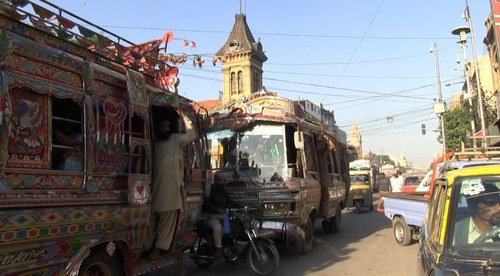ISLAMABAD: Adviser to the Prime Minister on Climate Change Malik Amin Aslam said on Tuesday electric vehicle (EV) policy would focus on encouraging manufacturing of vehicles locally with made-in-Pakistan tagline.
Speaking at the inter-ministerial meeting on electric vehicle policy, Amin Aslam said for local production incentives would be offered to auto manufacturing sector.
Held at the Ministry of Climate Change, the meeting was attended by representatives from Ministry of Industry and Production, Ministry of Finance, Auto Industry Development Committee (AIDC), Pakistan Auto Parts Manufacturers Association (Papaam), Engineering Development Board (EDB).
The agenda included finalisation of modalities regarding two and three wheelers import, manufacturing of infrastructure and parts after discussing them with relevant stakeholders including AIDC and Papaam and sending them to Economic Coordination Committee (ECC) for approval.
Listing benefits, the prime minister’s adviser said that possible benefits of electric vehicle penetration included decrease in emissions from transport sector, reduction in fuel import bill, and enabling the localisation of EV manufacturing.
“It would enable Pakistan to become part of the global value chain of EV manufacturing,” he said.
Participants called for further consultations with stakeholders for four wheeler electric vehicles. They emphasised that standardisation was an area where parameters needed to be specified.
Participants also decided that a subcommittee would be formed to draft parameters for standardisation and finalisation of recommendations for the Economic Coordination Committee (ECC) for two and three wheeler electric vehicles.
However, the Ministry of Industries and Production was requested to discuss proposed incentives with AIDC and Papaam, etc., and convey their input for two and three wheelers within a week and for four wheelers within 15 days.
He invited AIDC and Papaam through the industries ministry for consultative meetings with the existing automobile manufacturers to address their concerns, if any.
Amin Aslam told participants that Pakistan was the second country in the region to formulate and approve its EV Policy.
Representatives from Pakistan Engineering Council (PEC) suggested considering of capacity-building through arrangement of technical training programmes of skilled technicians working in auto manufacturing sector.
PEC suggested including key components of EV development skills in the training programmes and incentives to be offered to the existing EV manufactures as well as new entrants.
The representative of Federal Board of Revenue proposed 10pc Custom duty on two and three wheelers under incentive package based on some time frame rather than number of electric vehicles.
Published in Dawn, January 22nd, 2020















































